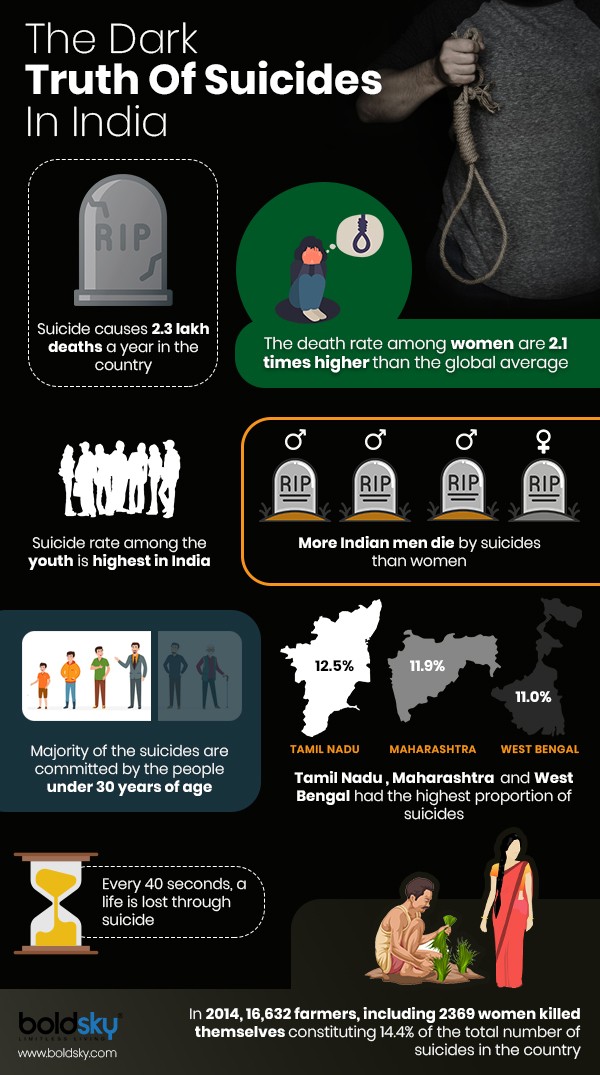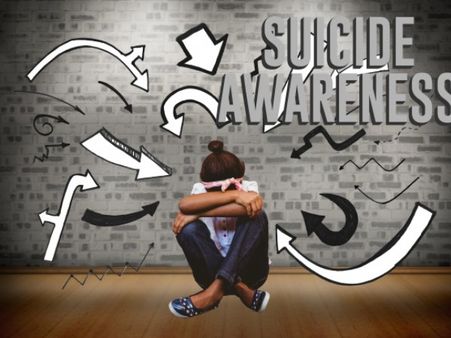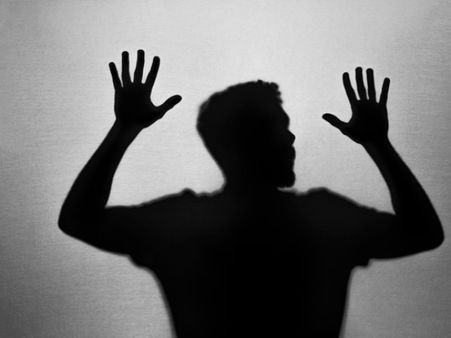Just In
- 4 hrs ago

- 5 hrs ago

- 8 hrs ago

- 8 hrs ago

Don't Miss
- Sports
 Pakistan vs New Zealand: Who Can Replace Mohammad Rizwan, Irfan Khan in PAK Squad?
Pakistan vs New Zealand: Who Can Replace Mohammad Rizwan, Irfan Khan in PAK Squad? - Movies
 Uorfi Javed Gets Trolled For Posing In Semi-n*de Clothes, Internet Asks To Do ‘High Five', Here's Why
Uorfi Javed Gets Trolled For Posing In Semi-n*de Clothes, Internet Asks To Do ‘High Five', Here's Why - News
 Kharge's Sharp Retort To PM Modi: Correcting Misinformation On Congress Manifesto 2024
Kharge's Sharp Retort To PM Modi: Correcting Misinformation On Congress Manifesto 2024 - Finance
 Multibagger Energy Stock To Reward Shareholders With 3 Bonus Shares, Hits 52-Week High
Multibagger Energy Stock To Reward Shareholders With 3 Bonus Shares, Hits 52-Week High - Automobiles
 Royal Enfield Unveils Revolutionary Rentals & Tours Service: Check Out All Details Here
Royal Enfield Unveils Revolutionary Rentals & Tours Service: Check Out All Details Here - Technology
 Elon Musk’s X Is Launching a TV App Similar to YouTube for Watching Videos
Elon Musk’s X Is Launching a TV App Similar to YouTube for Watching Videos - Education
 AICTE introduces career portal for 3 million students, offering fully-sponsored trip to Silicon Valley
AICTE introduces career portal for 3 million students, offering fully-sponsored trip to Silicon Valley - Travel
 Escape to Kalimpong, Gangtok, and Darjeeling with IRCTC's Tour Package; Check Itinerary
Escape to Kalimpong, Gangtok, and Darjeeling with IRCTC's Tour Package; Check Itinerary
World Suicide Prevention Day (WSPD) 2021: Recognising Symptoms Of Suicidal Behaviour; Helpline Numbers
Every year, 10 September is observed as World Suicide Prevention Day (WSPD). The day is observed to spread awareness of suicide, preventing suicides and providing the necessary help for struggling individuals.
Organised by the International Association for Suicide Prevention (IASP) in collaboration with the World Health Organisation (WHO), WSPD was initiated in 2003. The theme for World Suicide Prevention Day 2021 is 'Creating Hope Through Action.'

Amidst the global pandemic, WPSD 2021 will be more social-media oriented. The hashtag #WorldSuicidePreventionDay is used by different platforms to spread awareness, especially considering the tragic hike in the number of suicidal deaths in the year recent years [1].
Globally, the profound psychological and social effects of the pandemic has contributed towards a significant increase in suicide deaths [2][3]. Suicide prevention in the COVID-19 era is an important and challenging issue; health experts say [4]. In India, suicide was the leading cause of over 300 non-coronavirus deaths in the year 2020-21 [5].
Read on to know expert views and points on suicide and the ways you can help your loved ones or yourself in the event of suicide risks.

What Is Suicidal Behaviour?
Suicide is not termed a mental illness but a severe consequence of mental health disorders like major depression, bipolar disorder, post-traumatic stress disorder, borderline personality disorder, schizophrenia, substance use disorders, anxiety disorders, and eating disorders like bulimia and anorexia nervosa [6]. Suicidal behaviour is the act of talking about or taking actions that are related to ending one's life and are considered a psychiatric emergency.

Suicide is described as the act of taking one's own life and is one of the major leading cause of death in India [7]. About 800,000 people die by suicide worldwide every year, of these 135,000 (17 per cent) are residents of India.

What Are The Warning Signs Of Suicidal Behaviour?
You may never know or realise the emotional trauma and stress an individual is in. Hence, it is not always easy to realise when someone develops suicidal thoughts. However, mental health experts and psychiatrists suggest that there are certain warning signs which can help in recognising suicidal thoughts or behaviour in an individual [8].
- Excessive sadness or moodiness, mood swings and unexpected anger
- Feeling a sense of hopelessness and loneliness
- Making a will or giving away personal possessions
- Avoiding social interactions
- Searching for means of doing personal harm
- Eating too little or eating too much
- Engaging in reckless behaviours
- Excessive alcohol or drug consumption
- Showing signs of extreme anxiousness or agitation
- Talking about suicide as an escape route
- Sleeping too much or too little
- Suddenly becoming calm after a period of depression or moodiness
- Changes in personality and/or appearance (less concerned about his or her appearance)

What Factors Increase The Risk Of Suicide?
There is no one specific reason that triggers the risk of suicide. Several factors can increase the risk of suicide. Mental health issues are the most common cause of suicides, where depression is the highest risk [9]. Men and people over the age of 45 are at a higher risk for suicide.
Other mental health disorders that can increase the risk of suicide include [10]:
- bipolar disorder,
- schizophrenia,
- anxiety disorders, and
- personality disorders.
- Substance use disorder
- Childhood abuse or trauma
- Family history of suicide and/or previous suicide attempts
- Being socially isolated or a victim of bullying or harassment
- Poor job security [12]
- Chronic diseases
- Access to dangerous means such as firearms and/or drugs
- Difficulty seeking help or support
- Lack of access to mental health treatment
- Being diagnosed with a serious medical condition, such as cancer or HIV [13]
- History of abuse
Some of the other factors that increase the risk of suicide include [11]:
People in certain professions, such as police officers and health care providers who work with terminally ill patients, are in the suicide risk category [14]. Studies have pointed out that, although women are three times as likely to attempt suicide, men are far more likely to commit the act in its entirety.

What Should I Do If I Think Someone Is Suicidal?
If someone you know is exhibiting warning signs for suicide, you can help ease the situation by comforting them. Studies point out that people who receive support from caring friends and family and who have access to mental health services are less likely to act on their suicidal impulses [15]. The following can help in such scenarios:
- Do not be afraid to ask if he or she is sad, discouraged and/or thinking about suicide.
- Ask if he or she is seeing a therapist or taking medication.
- In some cases, the person needs to know that someone cares and is looking for the chance to talk about his or her feelings.
- Do not leave the person alone.
- Ask the person to give you any weapons he or she might have (to avoid self-injuries).
- Try talking the person out of suicide and let him or her know that depression is temporary and treatable.
- If the person is already in psychiatric treatment, help him or her to contact the doctor for guidance and help.
- Try to keep the person as calm as possible.
- Call your local suicide prevention hotline or take the person to a hospital.
Note: Always remember to be calm and comforting around a person who is anxious and discouraged. While it can be scary for you, know it in your heart that what you are doing may help save a life. Do not hesitate, always lend a helping hand (if your mental health permits you to).

Can Suicide Be Prevented?
The risk factors triggering suicidal behaviour can be managed with the timely intervention [16]. The right and most effective way to prevent suicide and suicidal thoughts are to be alert of the risk factors and recognise them once it starts. If anyone you know is having suicidal thoughts; what you can do is being aware of the possible risk factors and intervening before he or she can carry out the act of suicide.
If you feel that you are developing suicidal thoughts, the following can help:
- Talk to someone (organisations, support groups, close friends/family or professional therapists).
- Pay attention to the warning signs.
- Make lifestyle changes such as avoiding alcohol and drugs, exercising regularly and sleeping well [17].
- If you are already getting help, make sure to take your medications as directed and never skip an appointment.

List Of Suicide Helpline Numbers
- iCall: 9152987821 | Mon-Sat, 8:00 AM -10:00 PM | Languages: English, Hindi
- COOJ Mental Health Foundation (COOJ): 0832-2252525 | 01:00 PM - 07:00 PM | Monday to Friday
- Fortis Stress Helpline: +918376804102
- Parivarthan: +91 7676 602 602 | 10:00 AM to 10:00 PM | Monday to Friday
- Connecting Trust: +91 992 200 1122 | +91-992 200 4305 | 12:00 PM to 08:00 PM | All days of the week
- Roshni Trust: 040-66202000, 040-66202001 | 11:00 AM - 09:00 PM | Monday to Sunday
- Sahai: 080-25497777 | 10 AM- 8 PM Monday To Saturday | [email protected] Sumaitri: 011-23389090 | [email protected] | 2 PM- 10 PM Monday To Friday; 10 AM - 10 PM Saturday And Sunday
- Sanjeevani: 011-24311918, 24318883 | Timings: 10:00 AM - 5.30 PM (Monday to Friday)
- Sneha: 044-24640050 (24 HOURS) | 044-24640060 8 AM - 10 PM |[email protected]
- Lifeline: [email protected] - 033-24637401 | 033-24637432 | 10 AM - 6 PM

On A Final Note…
If you or someone you know is exhibiting suicidal behaviour, it is important to seek immediate assistance from a healthcare provider. Although it can seem scary to intervene, getting help at the right time can save a life.
Remember, no matter how much pain you are in right now, you are not alone. Help is available.
-
 healthWorld Suicide Prevention Day 2023: How To Identify Signs Of Suicidal Behaviour?
healthWorld Suicide Prevention Day 2023: How To Identify Signs Of Suicidal Behaviour? -
 lifeWorld Suicide Prevention Day 2020: Inspiring Quotes That Will Empower You
lifeWorld Suicide Prevention Day 2020: Inspiring Quotes That Will Empower You -
 wellnessAre You Sad Or Depressed? Know The Important Difference Between Sadness And Depression
wellnessAre You Sad Or Depressed? Know The Important Difference Between Sadness And Depression -
 disorders cureSushant Singh Rajput Dies Due To Asphyxia Resulting From Hanging: Know More About The Condition
disorders cureSushant Singh Rajput Dies Due To Asphyxia Resulting From Hanging: Know More About The Condition -
 menExclusive: Sushant Singh Rajput's Schoolmate Remembers Him; Lesser Known Facts
menExclusive: Sushant Singh Rajput's Schoolmate Remembers Him; Lesser Known Facts -
 wellnessIs COVID-19 Lockdown Increasing Suicide Mortality? A Study Based Approach
wellnessIs COVID-19 Lockdown Increasing Suicide Mortality? A Study Based Approach -
 lifeCab Driver Donates Rs 6,000 For Last Rites Of An Orphan, But Money Gets Used For His Own Funeral
lifeCab Driver Donates Rs 6,000 For Last Rites Of An Orphan, But Money Gets Used For His Own Funeral -
 newsWorld Suicide Prevention Day 2019: WHO To Launch Campaign, '40 Seconds Of Action' To Raise Awareness
newsWorld Suicide Prevention Day 2019: WHO To Launch Campaign, '40 Seconds Of Action' To Raise Awareness -
 wellnessWorld Mental Health Day 2018: Common Misconceptions Of Suicide & Warning Signs
wellnessWorld Mental Health Day 2018: Common Misconceptions Of Suicide & Warning Signs -
 disorders cureWhat Is Shared Psychotic Disorder? Is This The Reason For Burari Deaths?
disorders cureWhat Is Shared Psychotic Disorder? Is This The Reason For Burari Deaths? -
 disorders cure10 Interesting Facts About Trigeminal Neuralgia – The Suicide Disease
disorders cure10 Interesting Facts About Trigeminal Neuralgia – The Suicide Disease -
 wellnessTailored Suicide Prevention Messages Work Best: Study
wellnessTailored Suicide Prevention Messages Work Best: Study


 Click it and Unblock the Notifications
Click it and Unblock the Notifications



